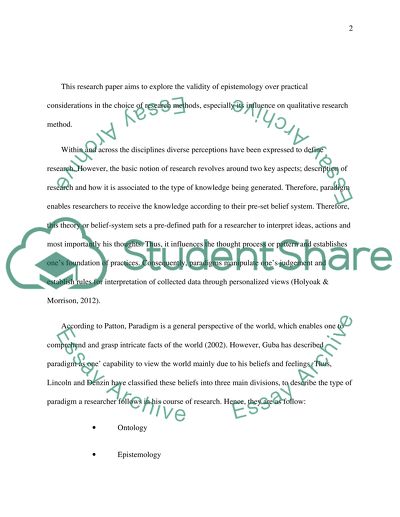Cite this document
(“Should The Choice Of Research Method Be Based On Epistemological Or Paper”, n.d.)
Should The Choice Of Research Method Be Based On Epistemological Or Paper. Retrieved from https://studentshare.org/philosophy/1618671-epistemologigal-essayshould-the-choice-of-reseach-method-be-baseed-on-epistemological-or-practical-consideration
Should The Choice Of Research Method Be Based On Epistemological Or Paper. Retrieved from https://studentshare.org/philosophy/1618671-epistemologigal-essayshould-the-choice-of-reseach-method-be-baseed-on-epistemological-or-practical-consideration
(Should The Choice Of Research Method Be Based On Epistemological Or Paper)
Should The Choice Of Research Method Be Based On Epistemological Or Paper. https://studentshare.org/philosophy/1618671-epistemologigal-essayshould-the-choice-of-reseach-method-be-baseed-on-epistemological-or-practical-consideration.
Should The Choice Of Research Method Be Based On Epistemological Or Paper. https://studentshare.org/philosophy/1618671-epistemologigal-essayshould-the-choice-of-reseach-method-be-baseed-on-epistemological-or-practical-consideration.
“Should The Choice Of Research Method Be Based On Epistemological Or Paper”, n.d. https://studentshare.org/philosophy/1618671-epistemologigal-essayshould-the-choice-of-reseach-method-be-baseed-on-epistemological-or-practical-consideration.


